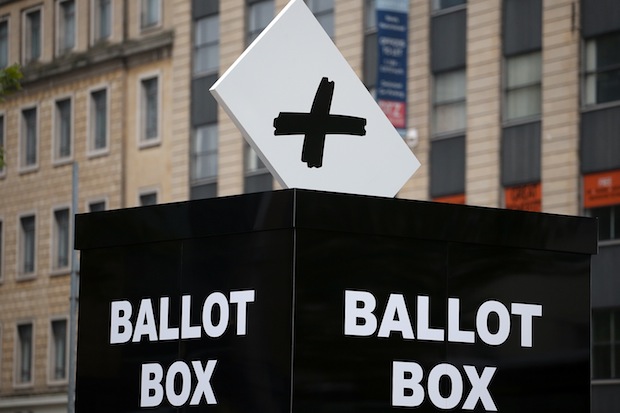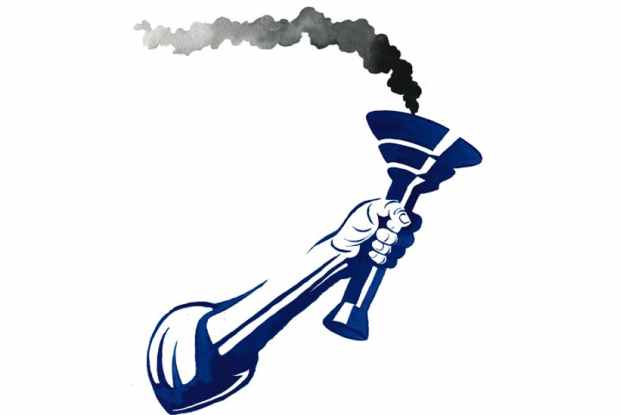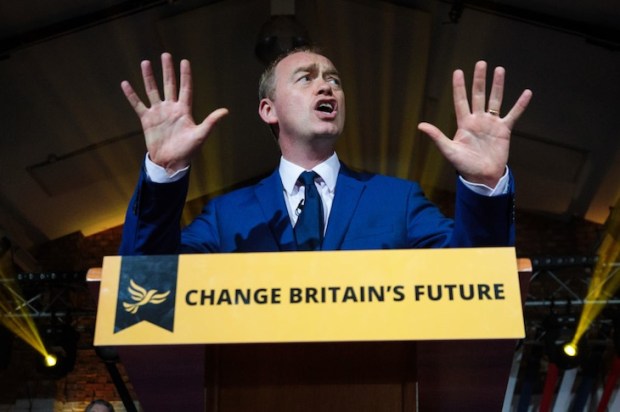Ed Miliband’s aides used to scurry around the parliamentary estate, their shoulders hunched. A look in their eyes suggested that they feared their boss’s harshest critics were right. But times have changed. Now Team Ed marches with heads high. The success of his pledge to freeze energy prices has given them a warm glow.
Five weeks on from the Labour leader’s conference speech, his commitment still dominates political debate. It has boosted his personal ratings, helped his party increase its support in the polls and convinced his supporters that he might be Prime Minister after the next election.
In these circumstances, one might expect the Tories to be panicking. But they’re not. They’re reassured by the fact that their party leads Labour on economic competence and that David Cameron remains comfortably ahead of Miliband on the question of who would be the best Prime Minister. Add to this that the economy is now growing at a robust pace — which will probably increase the Tories’ lead on the economy — and one can see why they are confident. After all, no party has ever won an election trailing, as Labour currently does, on both the question of which party is better for the economy and preferred PM.
How can the Tories lead on the economy and leadership and still trail overall? There are three possible answers. The first is that economic growth doesn’t matter in the way that it used to because, as Miliband said in his conference speech, the ‘vital link between the growing wealth of the country and your family finances [is] broken’. If people don’t think that Britain’s recovery will benefit them, then general economic stewardship will matter less politically. Labour strategists argue that in these circumstances the candidate who can persuade voters to think his party will be better for them and their family will be far more successful than the one who can boast of economic competence.
Tellingly, when the Chancellor, George Osborne, responded to last week’s positive GDP figures, he sought to emphasise that – pace Miliband – there is still a connection between economic growth and the wellbeing of the average voter. ‘If Britain is growing,’ he declared, ‘then the finances of Britain’s families will start to grow.’ The next election will turn on whether Osborne or Miliband is right on this point.
As for leadership, a senior member of Labour’s election team points out that while Cameron might have an advantage on the question ‘Who would be the best Prime Minister?’, his reach into the current Labour vote is weak. YouGov’s polling shows that Cameron has an 11-point lead over Miliband on the PM question among all voters. But of the 39 per cent who vote Labour, only 5 per cent think Cameron would be better than Miliband. If the Tories are going to be the largest party in 2015, they have to win over some of those who are, at this moment, planning to vote Labour. But Cameron’s appeal to this group is limited. Ninety per cent of them say that he is doing a bad job in government.
The second explanation for this polling paradox is that the traditional rules don’t apply in this era of coalitions and four-party politics. The most important change in British politics is that the left is now united and the right is divided. The Labour base has expanded with the incorporation of left-leaning 2010 Lib Dem voters who won’t support a party that is in coalition with the Tories. At the same time, as Melissa Kite reports on page 14, the Tory core vote is being nibbled at by Ukip.
When I asked one senior Labour figure if he was concerned about the research of Stephen Fisher, an election expert at Oxford University who predicted that, based on current trends, the Tories have a 57 per cent chance of winning a majority in 2015 and an 88 per cent chance of being the largest party, he dismissed it on the grounds that Fisher hadn’t taken into account this changed political landscape. The particular problem for the Tories is that the Liberal Democrat vote has collapsed in precisely the kind of Labour Tory marginals where they need their coalition partners to take votes from Miliband.
The third explanation, and the one that senior Tories are confident is right, is that the headline figures are a lagging indicator. They hope that when the election campaign comes and people really start to think about whom they want to run the country, their edge on the economy and leadership will start to translate into votes. They remain convinced that they can push their own support up to the high thirties and squeeze Labour down to the low thirties.
The Tories will also try to overhaul Labour’s advantage on the cost of living. They’ll seek to show not only that the proceeds of growth are being shared but that they are getting household bills down. Downing Street is determined not to get caught out again in the way that it did on energy prices. Aides in Number 10 are now frantically trying to anticipate Miliband’s next move on the cost of living front.
More fundamentally, the Cameroons want to claim fairness for the right. One ministerial ally of Osborne says that at the next election it is imperative that the Tories can offer a tax cut for working people paid for by savings from the welfare budget. This, he claims, would embody the Tory claim that fairness is rewarding those who work hard.
Labour’s challenge is to show that they are economically credible. This is a struggle, given the fiscal record of the last Labour government. There is also a sense that for all the success of the energy freeze it might actually be working against Labour in this regard because it sounds just too good to be true; more than half of voters don’t think they will be able to actually do it. Miliband has made a mistake in not emphasising that he plans to use this 20-month freeze to push through changes to the energy market. At the moment, he sounds as if he wants to defy the market rather than reform it. This is not a good place to be if you’re trying to establish economic credibility.
The next election will be fascinating not only because it will be a genuine ideological contest, but also because it will be so unpredictable. The usual electoral rules may well not apply.
Got something to add? Join the discussion and comment below.
Get 10 issues for just $10
Subscribe to The Spectator Australia today for the next 10 magazine issues, plus full online access, for just $10.
You might disagree with half of it, but you’ll enjoy reading all of it. Try your first month for free, then just $2 a week for the remainder of your first year.















Comments
Don't miss out
Join the conversation with other Spectator Australia readers. Subscribe to leave a comment.
SUBSCRIBEAlready a subscriber? Log in